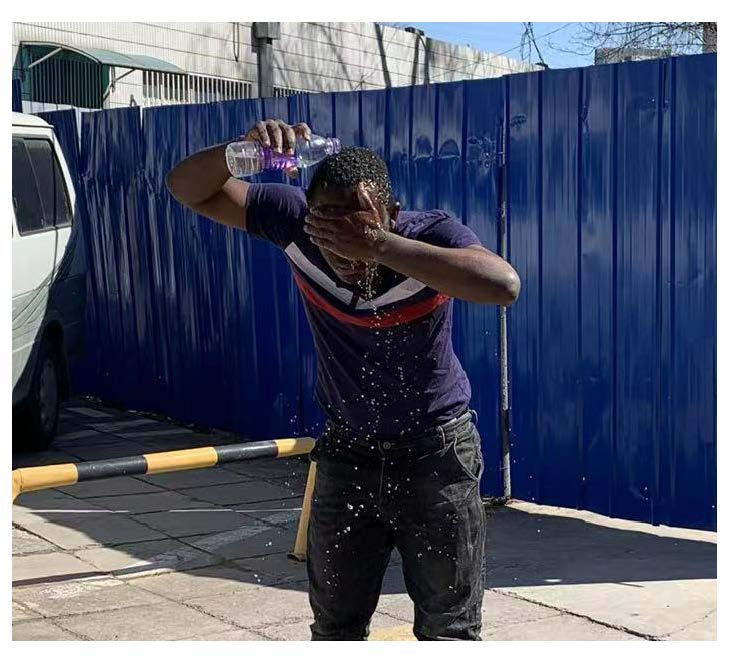Due to global warming, heatwave events will likely cause severe damage to natural ecosystems and human society. Urban areas are at higher risk owing to the significant economic activities carried out there and the populations residing in them. As such, it is becoming important to understand the characteristics of recent changes in heatwave patterns. The World Meteorological Organization declared that 2019 was one of the warmest years globally since 1850. However, although several studies have attempted to examine the heatwave events that took place in 2019 across the globe, there is still limited understanding regarding heatwave hotspot regions in Africa, particularly their spatial link with urban areas.
Attempt to cool-off intense heat. (Photo taken in Lagos, Nigeria by Kokuo Dangui)
Towards addressing this, researchers from the Institute of Atmospheric Physics, Chinese Academy of Sciences, integrated climate reanalysis, satellite and population data to quantify heatwave hotspots in 2019 over Africa, and the results have recently been published in
Atmospheric and Oceanic Science Letters.
The study demonstrated that there was a major shift in the spatial distribution of heatwave hotspots from the equatorial region in the baseline period (1981–2010) to large areas up to the temperate climate zones (above 30°N and 30°S) in 2019, affecting more urban agglomerations. The proportion of urban agglomerations (population) exposed to extreme (99th percentile) heatwaves in the Northern Hemisphere and Southern Hemisphere rose from 4% (5 million people) and 15% (17million people) respectively in the baseline period, to 36% (43 million people) and 57% (53 million people) respectively in 2019. Overall, the heatwave hotspots of 2019 in Africa were accompanied by seasonal changes in atmospheric circulation and above-normal sea surface temperature, likely as a result of large-scale forcing due to climate change.
"These findings are significant for human health, energy consumption, and water security in developing and vulnerable regions such as Africa that are experiencing population growth but have low adaptive capacity," explains Prof. JIA Gensuo, corresponding author of the study. "We therefore advocate for sustainable urban planning with innovative solutions to help minimize the impact of heatwave exposure over Africa in the coming years. Our work represents a key advancement in terms of the spatial link between heatwave hotspots and urban agglomerations."
Citation:
Eghosa Igun, Xiyan Xu, Yonghong Hu, Gensuo Jia, 2022. Strong heatwaves with widespread urban-related hotspots over Africa in 2019. Atmospheric and Oceanic Science Letters, https://doi.org/10.1016/j.aosl.2022.100195.
Media contact: Ms. LIN Zheng, jennylin@mail.iap.ac.cn

